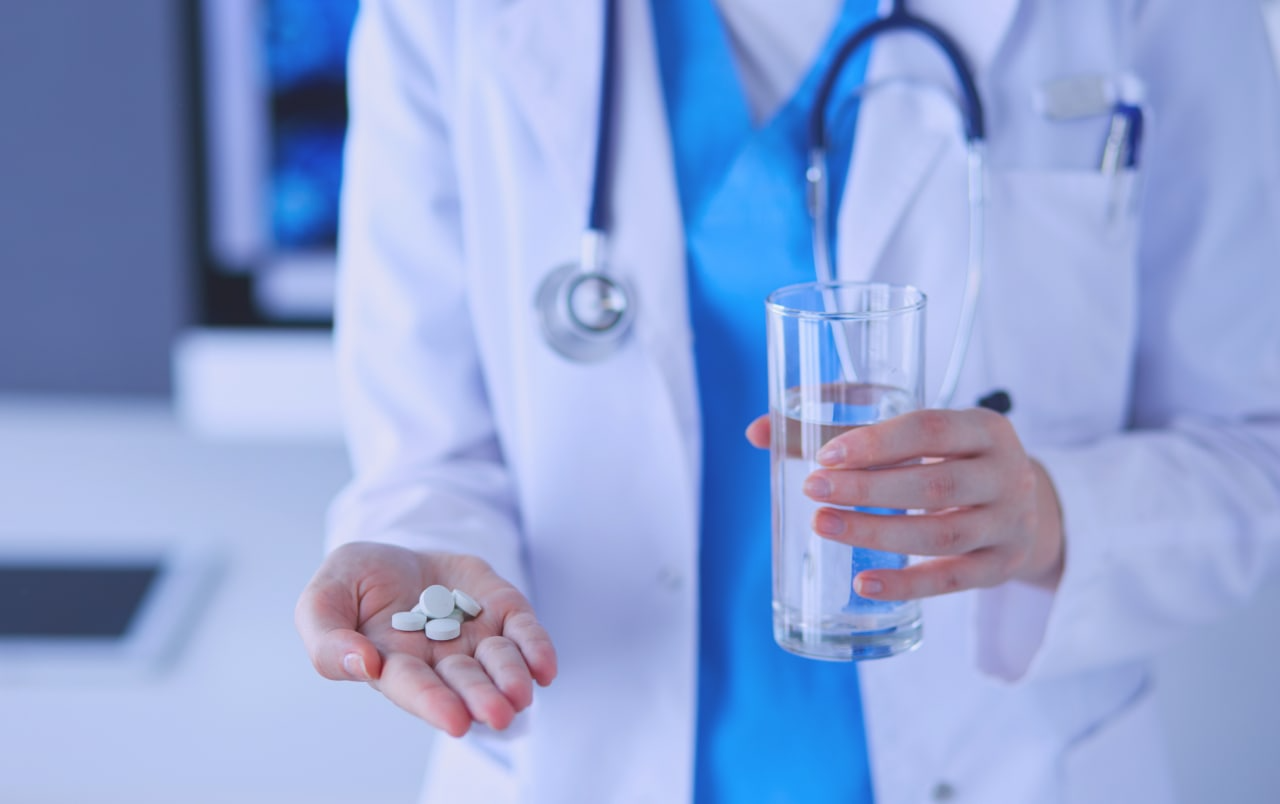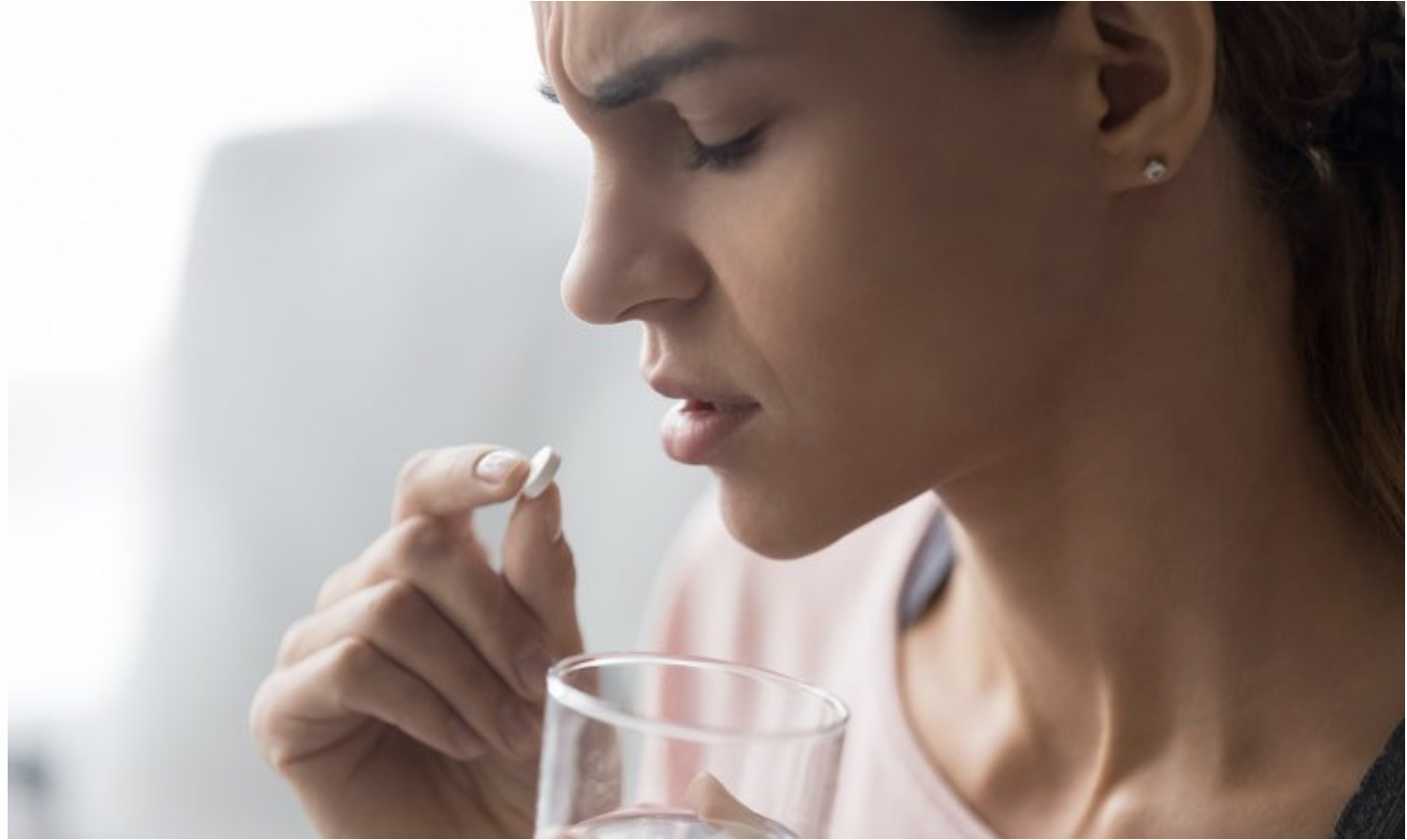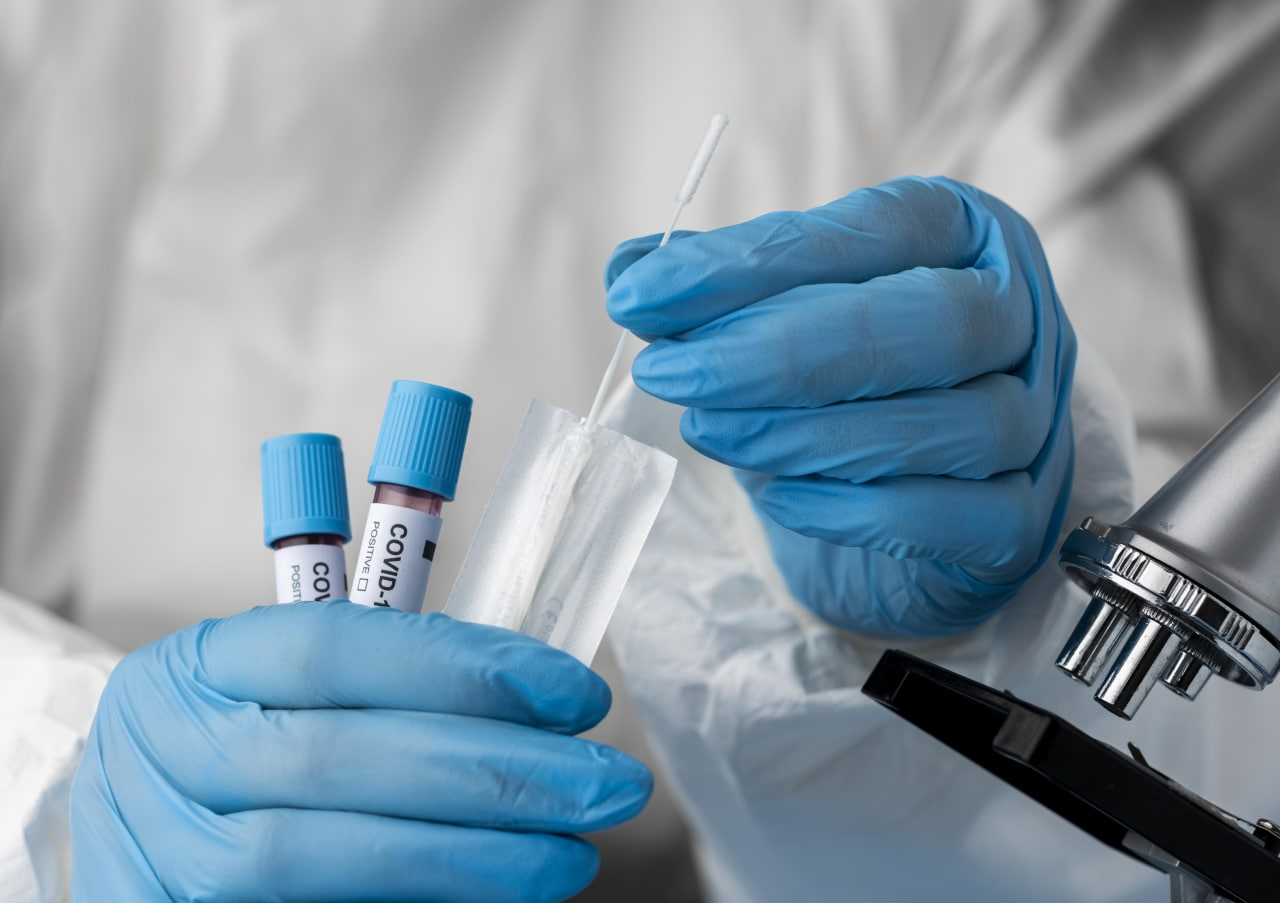Published by: Maria Bryndina on 13.October.2022
10 myths about antidepressants
Demand for drugs to treat depression has increased. According to statistics, the number of patients taking them in 2020 is 23% higher than in 20151. Due to the unstable economic situation in 2022 demand for antidepressants will remain.

However, myths about antidepressants do still exist (even among members of the medical community). Let's clarify them together.
1. Antidepressant medications are inefficient
One of the most common myths about antidepressant drugs is their ineffectiveness. This belief is based on blank spots remaining in the pathophysiology of depression and the mechanism of action of drugs for its treatment. Some researchers suppose that the therapeutic activity of antidepressant medications comes from side effects that reinforce the patient's expectations1. An extensive review of 15 studies involving more than 3300 patients set the record straight. Its results showed that participants without early on-treatment adverse events, who received citalopram or paroxetine, experienced significantly greater improvement in symptoms of depression, as measured by the Hamilton Depression Scale, compared with those who took placebo2.
2. Abnormal serotonin metabolism is not related to the pathogenesis of depression, therefore, selective serotonin reuptake inhibitors (SSRIs) are not suitable
Some experts have long believed that the hypothesis of the influence of serotonin and its precursor 5-hydroxytryptophan on the development of depression is nothing more than a tool for the pharmaceutical industry to promote a simplified biological model of this pathology and stimulate the market for SSRIs. However, a decrease in brain levels of 5-hydroxytryptophan has been proved to be able to cause acute relapses in patients with depression3. This data confirms the role of serotonin in the development of depression and is a ground for considering SSRIs as approved antidepressant drugs.
3. Antidepressant drugs work only while being taken, and when the course is completed, the risk of relapses of depression does not decrease
Studies in adults have shown that antidepressants, in particular tricyclic antidepressants (TCAs), SSRIs, selective serotonin and norepinephrine reuptake inhibitors (SNRIs), may reduce the risk of relapse, although not prevent it completely. Thus, relapse occurred in 50% of patients who had received placebo within 1-2 years, and in only 23% of those who had taken antidepressants4. The results of a large review of 31 studies involving 4410 patients showed that the effect of antidepressant treatment appears to last up to 36 months. Obviously, the preventive effect of antidepressants is largely individual and depends on the absolute risk of relapse: the higher the latter, the higher the preventive efficacy of the drugs5.
4. Nowadays TCAs are hardly used
TCAs have been used since 1959. Since safer drugs were invented, in particular SSRIs and SNRIs, the demand for TCAs as antidepressant medications has actually decreased. Nowadays, SSRIs are the first-line treatment for depression and a number of other psychiatric disorders. Nevertheless, TCAs remain relevant as a means of therapy and prevention of a number of other diseases. Thus, the effectiveness of TCAs as a means for preventing migraine, treating insomnia, chronic pain, especially neuropathic pain (in particular, myofascial pain, diabetic neuropathy, postherpetic neuralgia) has been proven. Nocturnal enuresis in children is also treated with TCAs6-9.
5. Antidepressant drugs are strictly contraindicated in pregnancy
The negative attitude towards prescribing antidepressant pills in pregnancy is associated with TCAs, which occured on the market around the time of the “thalidomide tragedy”. Then, from 8,000 to 12,000 children were born with malformations due to the use of thalidomide by mothers as a sleeping pill. However, since SSRIs with a favorable safety profile were invented, the situation has changed.
From 1995 to 2005, the use of antidepressant therapy in pregnancy tripled. According to modern ideas, the use of antidepressants in pregnant women should be based on a careful assessment of the benefit/risk ratio10. It is believed that the risks associated with antidepressant withdrawal may be much higher than the risks associated with the possible negative effects of antidepressant pills on the fetus.
6. SNRIs are similar in mechanism of action to TCAs
As a matter of fact, SNRIs, as well as TCAs, inhibit the reuptake of the two leading neurotransmitters, norepinephrine and serotonin, by presynaptic nerve endings of neurons, causing the accumulation of monoamines in the synaptic cleft and enhancing postsynaptic impulses. However, unlike TCAs, SNRIs have no effects on cholinergic, adrenergic, or histamine receptors. The experience gained with the use of SNRIs suggests that they are comparable in their effectiveness and, at the same time, significantly safer than TCAs, in particular, with amitriptyline and nortriptyline11.

7. Antidepressant medications may be cardiotoxic
Prescribing antidepressant drugs not only improves the mental state, but also helps to reduce the risk of cardiovascular disease. Thus, drugs in this group reduce chances of recurrent cerebral ischemia in patients who have had a stroke and recurrent myocardial infarction. In addition, antidepressants appear to improve post-infarction survival11.
8. All antidepressant drugs have negative effects on sexual function
Several mechanisms may cause sexual dysfunction when antidepressants are taken. First of all, those are sedation, that decreases libido, lower dopamine levels, neurotransmitters’ effect on peripheral nervous system, which is disrupting the balance of the adrenergic and cholinergic systems. Hormonal effects also count, in particular, an increase in the level of prolactin provoked by increase in serotonin, as well as enzymatic ones, such as the induction of hepatic metabolism of testosterone, blocking the synthesis of nitric acid. In addition, depression itself can be a cause of erectile dysfunction.
All these mechanisms lead to a number of disorders, including delayed, premature or painful ejaculation, decreased libido, erectile dysfunction, anorgasmia, priapism, etc. However, a number of antidepressants rarely cause sexual dysfunction. These are the MAO inhibitor moclobemide, the TCA mirtazapine, tianeptine, the norepinephrine reuptake inhibitor reboxetine12.
9. SSRIs interact with other drugs easily
As a matter of fact, SSRIs inhibit enzymes of the cytochrome CYP system, which is associated with pharmacokinetic drug interactions. However, different drugs in this group differ from each other in their ability to inhibit individual CYPs significantly. Thus, fluoxetine and paroxetine are strong inhibitors of the CYP2D6 isoenzyme and can increase plasma concentrations and side effects of drugs that are predominantly metabolized by this isoenzyme (for example, beta-blockers - carvedilol, metoprolol, propranolol, etc.). However, citalopram and escitalopram are weak inhibitors of CYP2D6 and are less likely to interact with other drugs1.
10. Prescribing SSRIs along with SNRIs is inappropriate, since the drugs of these groups have a similar pharmacological effect
According to the latest data, combinations of SSRIs and SNRIs may actually be promising. Moreover, their components can enhance each other's effects. So, venlafaxine and sertraline has proved to be synergistic. It is explained by the simultaneous increased impact on three key monoaminergic systems: serotonergic, noradrenergic and dopaminergic. By enhancing monoaminergic neurotransmission impaired in depression, the combination of the SSRI sertraline and the SNRI venlafaxine eliminates most symptoms of depression. Moreover, pharmacological synergy allows to lower the dose of venlafaxine and sertraline in combination, minimizing the side effects and toxic risks of each of the drugs13.
References:
- Antidepressant prescribing up 6% in last three months of 2020. (accessed 25 March 2022)
- Final Word? Antidepressants 'Do Work'. (accessed 15 March 2022).
- Hieronymus F. et al. Efficacy of selective serotonin reuptake inhibitors in the absence of side effects: a mega-analysis of citalopram and paroxetine in adult depression //Molecular Psychiatry. 2018; 23 (8): 1731-1736.
- Cowen P. J. Serotonin and depression: pathophysiological mechanism or marketing myth? //Trends in Pharmacological Sciences. 2008; 29 (9): 433-436.
- Depression: How effective are antidepressants? (accessed 16 March 2022).
- Geddes J. R. et al. Relapse prevention with antidepressant drug treatment in depressive disorders: a systematic review //The Lancet. 2003; 361 (9358): 653-661.
- Xu X.M., Liu Y., Dong M.X., Zou D.Z., Wei Y.D. Tricyclic antidepressants for preventing migraine in adults // Medicine (Baltimore). 2017 Jun; 96 (22): e6989
- Hayashida K.I., Obata H. Strategies to Treat Chronic Pain and Strengthen Impaired Descending Noradrenergic Inhibitory System // Int J Mol Sci. 2019 Feb 14; 20(4)
- Gepertz S., Nevéus T. Imipramine for therapy resistant enuresis: a retrospective evaluation // J Urol. 2004 Jun; 171(6 Pt 2): 2607-10; discussion 2609-10.
- Anick Bérard et al. Impact of antidepressant use, discontinuation, and dosage modification on maternal depression during pregnancy // European Neuropsychopharmacology. July 2019 Jul; 29 (7): 803-812 (accessed 14 September 2022).
- Sheng-Min Wang, Changsu Han, Won-Myoung Bahk, Soo-Jung Lee, Ashwin A. Patkar, Prakash S. Masand, and Chi-Un Pae. Addressing the Side Effects of Contemporary Antidepressant Drugs: A Comprehensive Review // Chonnam Med J. 2018 May; 54(2): 101–112 (accessed 14 September 2022).
- Meera Vaswani, Farzana Kadar Linda, Subramanyam Ramesh. Role of selective serotonin reuptake inhibitors in psychiatric disorders: a comprehensive review // Progress in Neuro-Psychopharmacology and Biological Psychiatry. 2003 Feb; 27 (1): 85-102 (accessed 14 September 2022).
- Agnes Higgins, Michael Nash, and Aileen M Lynch. Antidepressant-associated sexual dysfunction: impact, effects, and treatment // Drug, Healthcare and Patient Safety. 2010 Sep 9. 2010; 2: 141—150 (accessed 14 September 2022).
Colleagues, haven't you joined our PharmaCourses of MENA region Telegram chats yet?
In the chats of more than 6,000 participants, you can always discuss breaking news and difficult situations in a pharmacy or clinic with your colleagues. Places in the chats are limited, hurry up to get there.
Telegram chat for pharmacists of MENA region: https://t.me/joinchat/V1F38sTkrGnz8qHe
Telegram chat fo physicians of MENA region: https://t.me/joinchat/v_RlWGJw7LBhNGY0







